New Scientist covers the latest developments in science and technology that will impact your world. New Scientist employs and commissions the best writers in their fields from all over the world. Our editorial team provide cutting-edge news, award-winning features and reports, written in concise and clear language that puts discoveries and advances in the context of everyday life today and in the future.
Elsewhere on New Scientist
Could do better • Reasons for concern, and optimism, ahead of the next crucial climate summit
New Scientist
More floods in Australia • Continued extreme rain has flooded towns across eastern Australia and there might not be a let-up until 2023, reports Alice Klein
Plan to save Greenland glacier • Engineering firms are contemplating an ambitious project that aims to slow ice melt and hold back catastrophic sea level rise, reports Rowan Hooper
Quantum watch is ‘a completely new way of measuring time’
High school student sequences genome of his pet angelfish
Turmeric supplements have been linked to liver damage in five people
Hypnotherapy app eases IBS symptoms in just six weeks
Dozens of turtle species use vocal sounds to communicate
California mountain lions took more risks after huge wildfire
Weather sensors that float forever • A device that uses sunlight to levitate could stay in the stratosphere indefinitely
Cannabis users experience more pain after surgery
Space telescope glimpses the smallest distant galaxy
Pillars of Creation look even starrier in new JWST image
Analysis Energy • Can geothermal energy heat the UK? Underground heat could end the country’s reliance on gas, say MPs, but exploiting this potential isn’t straightforward, says Madeleine Cuff
Why mosquitoes bite some people more than others
Dyslexia linked to genetic variants • A genetic test could one day assess whether a child is predisposed to have dyslexia
Radiation-resistant alloy could boost spacecraft shielding
AIs built by Meta beat human experts at Diplomacy game
Weedkiller impairs visual learning in bumblebees
Proton’s stretchiness remains a puzzle for particle scientists
Robotic laser can target and kill cockroaches
Gases from asteroid are studied on Earth
Gut bacterium eases liver disease in mice
Physical neural net could make aircraft wings that morph
Really brief
Seeing red • We have projected our hopes and fears onto Mars through the ages. Even today, the Red Planet still spells adventure, says Stuart Clark
Field notes from space-time • Cosmic challenges The extraordinary James Webb Space Telescope, named after a man whose legacy I deplore, represents the contradictions of my job, says Chanda Prescod-Weinstein
Record breaker
Editor’s pick
Out of the inferno • The wildfires that cut swathes across Europe this year resonate in a taut, realistic story of a father and son fleeing a local blaze, says Katie Smith-Wong
The safari just outside your office
Clear and present emissions • While the US military appears to take climate change seriously, it is a major polluter. James Dinneen explores an exposé of the pentagon’s bad habits
Don’t miss
The film column • Staying in An architect who never leaves her desirable, if lonely, flat notices a clock running backwards and other oddities in her slick world. Remote explores the deep feeling under the surface of teched-up, consumerist lives, says Simon Ings
Last shot • We have had years of missed opportunities to hit our climate goals, and with a fossil fuel gold rush triggered by Russia’s invasion of Ukraine, the situation looks bleak. But ahead of COP27, there are still positives to reach...
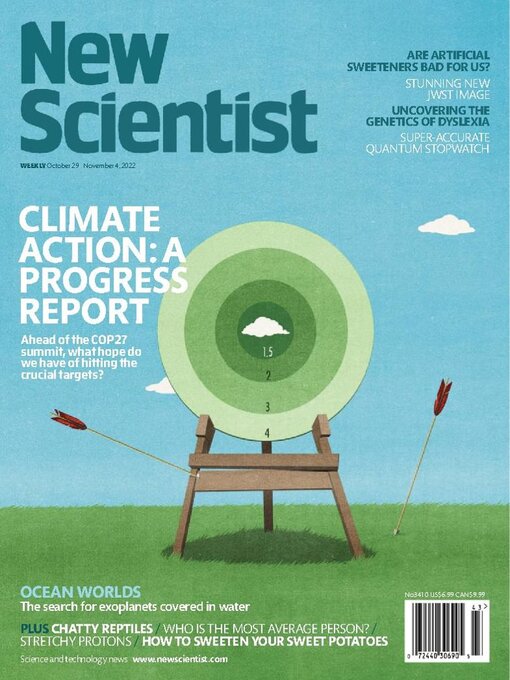
 Apr 13 2024
Apr 13 2024
 Apr 06 2024
Apr 06 2024
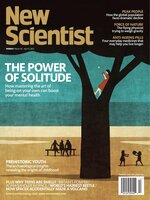 Mar 30 2024
Mar 30 2024
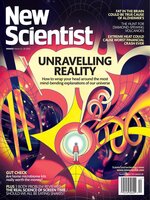 Mar 23 2024
Mar 23 2024
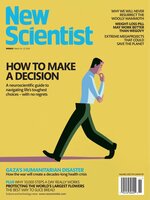 Mar 16 2024
Mar 16 2024
 Mar 09 2024
Mar 09 2024
 Mar 02 2024
Mar 02 2024
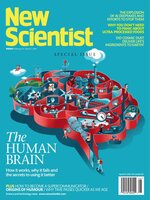 Feb 24 2024
Feb 24 2024
 Feb 17 2024
Feb 17 2024
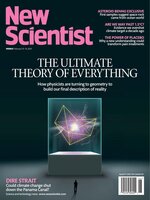 10 Feburary 2024
10 Feburary 2024
 Feb 03 2024
Feb 03 2024
 Jan 27 2024
Jan 27 2024
 Jan 20 2024
Jan 20 2024
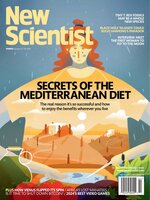 Jan 13 2024
Jan 13 2024
 Jan 06 2024
Jan 06 2024
 Dec 30 2023
Dec 30 2023
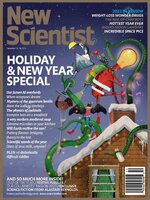 Dec 16 2023
Dec 16 2023
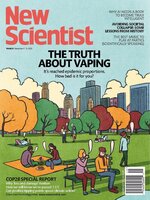 Dec 09 2023
Dec 09 2023
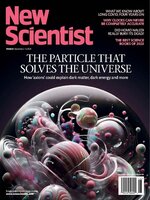 Dec 02 2023
Dec 02 2023
 Nov 25 2023
Nov 25 2023
 Nov 18 2023
Nov 18 2023
 Nov 11 2023
Nov 11 2023
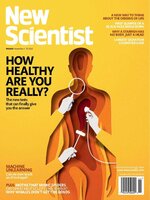 Nov 04 2023
Nov 04 2023
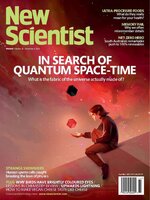 Oct 28 2023
Oct 28 2023
